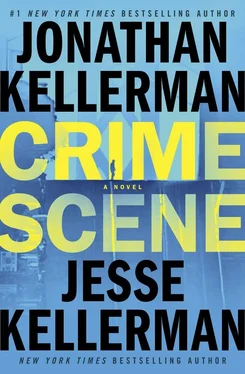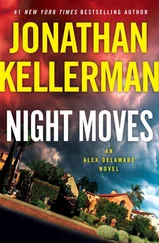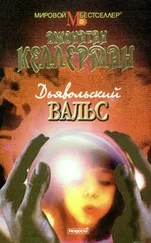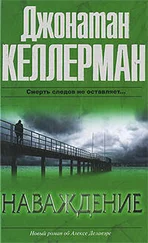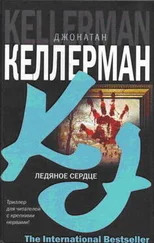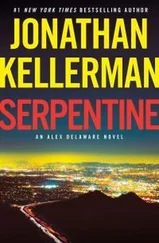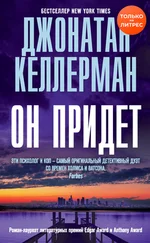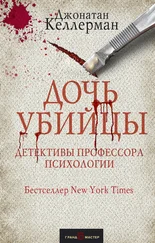All the same, I found it hard to believe that twenty minutes, once a week, could inspire anyone to pick up a knife and kill. Kids in 1993 saw far worse stuff, far more often.
Nonpsychotic kids.
But most mentally ill people — the vast, statistical majority — weren’t violent.
I closed the laptop, stretched toward my nightstand to shut off the lamp.
I had a text from Tatiana, five minutes old.
R u up
I slid to reply. Yes
Did I wake u she wrote.
No I was up. Whats going on where are you
Her answer, slow in coming, had me scratching my head.
Protons
?
*portland she wrote fucking autocorrect
The tone, so nonchalant, taking for granted that her being in Portland was any easier for me to accept than her being inside an atom smasher.
Whats in portland I wrote.
Friends
I didn’t know you had friends there
Of course I didn’t. I didn’t know anything about her, not really.
Yup she wrote.
I’d given her an opening to explain; she’d passed. I chose not to force the issue. Ok when are you back
Don’t know
I need to tell you some things
About
I read the psych dept report I wrote. Also spoke to Vannen
Please can u just leave it alone
I started to type a reply; reconsidered and dialed her instead.
She picked up after half a ring.
“Hey,” I said.
Amid the rustle of sheets, she whispered, “Hang on.”
“First off, I wanted to say that if you’re feeling like I—”
“Hang on.”
Her voice, breathy, then the sound of a door closing. When she spoke again there was a ceramic echo; she’d gone into a bathroom or kitchen. “It can’t wait until the morning?”
“You texted me,” I said.
“I know, I — look, I recognize that it’s my fault you’re doing this.”
“Doing what?”
“Digging. I provoked you, but I was being—”
“You didn’t provoke me.”
“I did. But I’m over it. I don’t want to hear it,” she said. “I can’t hear it, right now.”
I heard a man’s voice, muffled and sleep-addled: “Baby?”
A knock; a lull; a blossoming hollow-point of silence.
“Just a second,” she called.
“Who’re you talking to?” the man said.
“Nobody,” she called.
“Come back to bed.”
“In a second. ”
“You know what,” I said, “we can talk later.”
“Clay—”
“Enjoy Portland.”
I hung up and shut off my phone.
I slept poorly, waking at dawn and stumbling out to my living room. Gray sun smeared the soiled carpet. I needed to call my landlord, have it steam-cleaned.
Clinging to the corner of my TV was Tatiana’s note.
She needed to get out. Clear her head. I shouldn’t wait up.
She’s what you’d call a runner.
I removed the note and crumpled it.
In the kitchen I opened the cabinet above the fridge. At the back of the highest shelf sat the plastic evidence bag containing her father’s whiskey tumbler. I fetched it down, stood turning it in my hands.
You made it sound like there was nothing left to think about.
Yes, I had.
I don’t get what you’re trying to achieve.
I started to carry the tumbler to the trash.
I thought you wanted to help me.
Everything I’d told myself, about owing a debt to the dead — it was true, too.
But there was something else at play.
Me.
No longer relegated to setting up shots.
Finding myself wide open, behind the three-point line.
I tore the bag open, took the tumbler out, went back to my living room.
I put the tumbler on the mantel, in full view of the front door.
I’d see it whenever I walked in, and I’d remember.
Not for her.
Not for them.
For me.
Nicholas Linstad’s ex-wife, Olivia Harcourt, lived in Piedmont, an island of privilege surrounded by the socioeconomic typhoon that is Oakland. We don’t take many coroner’s calls there. I’d been inside one home, two years ago, an eye-popping Dutch Colonial where a ninety-year-old society doyenne had drowned in her pool.
Olivia Harcourt’s place made that one look like a cottage. Soaring walls of dove gray peeked through old-growth redwoods as I leaned out to ring the call box. A large curlicued S emblazoned the gate panels. I hadn’t yet figured out what it stood for when they swung back.
I inched up the drive, around the bend, took in a clearer view.
Olivia Harcourt lived in a castle.
By “castle” I don’t mean that it was really big or that it had a weak medieval flavor. I mean stone, mortar, towers, heraldic flags, a gatehouse, a drawbridge. The turrets — I could see three — had those skinny little windows cut in the masonry, for archers to shoot through.
I couldn’t see any archers, but that didn’t mean they weren’t there.
A cobbled parking circle, a gushing fountain. The lady of the manor stood in the shade of a marble pergola. In her late forties, she was attractive in a print ad sort of way, blond-haired and blade-faced, wearing a sleeveless blouse that showed off taut, tan arms. Her face had been reengineered and chemically relaxed, but subtly, and to good effect. Wide-cut slacks gave her a sunken appearance from behind, calling to mind an old remark of Moffett’s. Legs for days but ass for the next five minutes.
She met me with a winning smile. She was prepared. It had taken me weeks to get past her snotty assistant.
“Thanks for agreeing to see me,” I said.
She said, “How could I say no?” As if consent had been immediate. “It’s not every day I get a call from the police.”
Walking beneath the raised portcullis, we entered a stone corridor adorned with period weaponry. Broadswords, a lance, a crossbow, a pair of battle-axes, and a bunch more I couldn’t name. Tied to each was a gigantic Christmas candy cane. Grievous bodily harm, followed by tetanus, and tooth decay.
Olivia Harcourt saw me ogling. A well-worn smile. She was used to explaining.
“The structure is based on a thirteenth-century monastery in Toulouse. My parents summered there one year and liked it so much they decided to copy it.”
The S on the gates: Sowards.
“It’s not a hundred percent accurate,” she said.
“No monks.”
“Indoor plumbing.”
The hall opened into a cloister lined with gothic arches. I saw tinsel. Birds flitted across the gleaming, hazy courtyard.
I said, “Is that a well?”
She crooked a finger and we detoured. I peered down at cloudy water, specks of vegetal matter floating on the surface. Dragonflies mated in midair.
“It’s drinkable,” she said. “We’ve had it tested. But I wouldn’t recommend it.”
Inside the great room, we sat in high-backed chairs. A unicorn tapestry topped the fireplace; there was a fire going. Too close to a fifteen-foot fir awaiting ornaments. A uniformed maid emerged from behind a suit of armor to serve tea on a silver tray.
From the photos scattered about, I deduced that Olivia Harcourt had had her fill of lanky Scandinavians: her current husband was squat and swarthy and thick-necked, traits he’d passed to their children, son and daughter alike.
Aside from the maid, who vanished as silently as she had appeared, joining us was a silver-haired man dressed in a fitted blue suit, white shirt, and gray tie one shade lighter than the castle’s stone.
He introduced himself as Robert Dutton Stanwick, Mrs. Harcourt’s attorney.
Читать дальше
